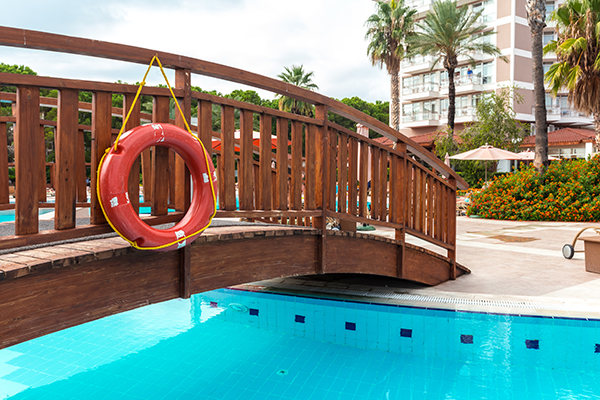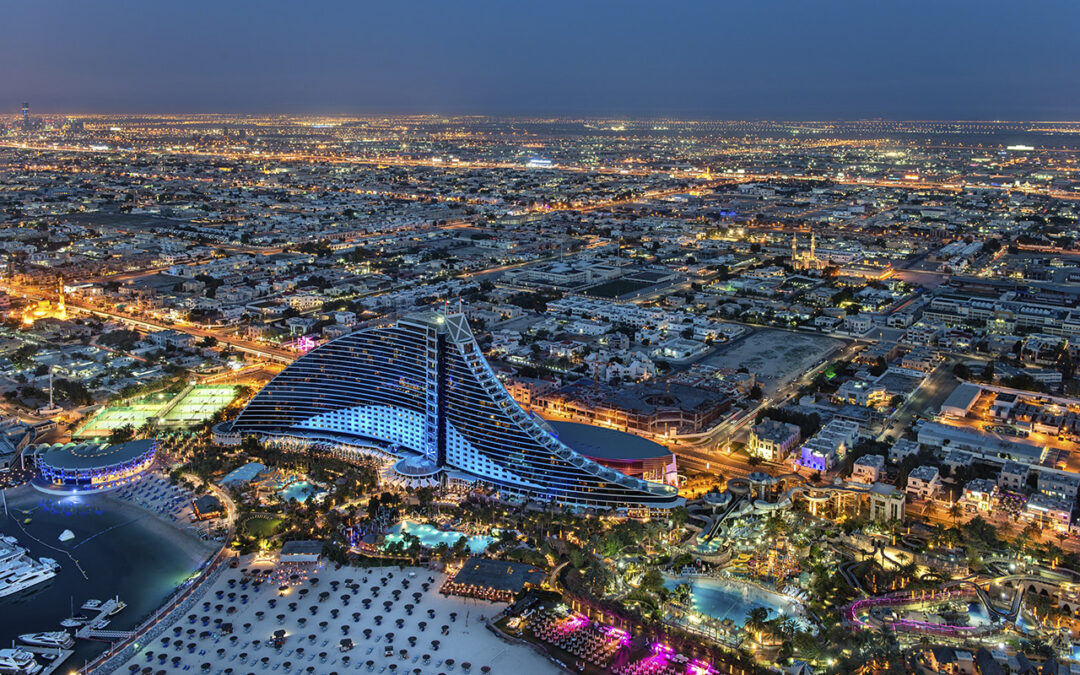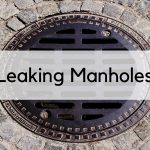Water is a critical yet often overlooked resource in the hospitality industry. With the increasing global focus on sustainability, hotels and resorts must take proactive steps to reduce water wastage. One of the most effective ways to do this is by implementing hotel and resort leak detection systems.
Leaks may seem like a minor issue, but they can lead to thousands of litres of water loss per day, resulting in higher utility bills, structural damage, and a negative guest experience. Beyond the financial implications, water leaks also pose a significant environmental threat, contributing to unnecessary water depletion and increasing a hotel’s carbon footprint.
In this article, we’ll explore why hotels and resorts must prioritise leak detection, the impact of leaks on finances and sustainability, and the best strategies for detecting and preventing leaks before they cause major damage.
Understanding Water Leaks in Hotels & Resorts
 Hotels and resorts operate on an extensive plumbing system, making them highly susceptible to leaks. From guest rooms and kitchens to pools, spas, and irrigation systems, a leak can emerge from multiple sources, often going unnoticed for months.
Hotels and resorts operate on an extensive plumbing system, making them highly susceptible to leaks. From guest rooms and kitchens to pools, spas, and irrigation systems, a leak can emerge from multiple sources, often going unnoticed for months.
Common Sources of Water Leaks in Hotels
- Guest Rooms – Dripping taps, running toilets, and leaking showers waste thousands of litres daily.
- Swimming Pools & Spas – Cracks in pool linings and underground leaks lead to significant water loss.
- Irrigation & Landscaping – Faulty sprinklers, pipe leaks, and overwatering contribute to waste.
- Kitchens & Laundry Facilities – Leaky dishwashers, damaged washing machines, and broken pipes increase water consumption.
- Boilers & HVAC Systems – Undetected leaks in heating and cooling systems lead to inefficiencies and higher energy costs.
Some leaks, like a dripping tap, are easy to spot. Others, like underground pipe leaks, may require specialist detection methods to identify.
The Environmental Impact of Water Leaks
Water conservation is a growing priority for the hospitality industry, with many hotels and resorts committing to sustainability certifications such as LEED and Green Key. However, water leaks can significantly hinder these efforts.
How Water Leaks Harm the Environment
- Unnecessary Water Consumption – A single leaking pipe can waste up to 10,000 litres per day, straining local water supplies.
- Energy Waste – Water leaks mean more water needs to be treated, pumped, and heated, increasing a hotel’s carbon footprint.
- Soil Erosion & Ecosystem Damage – Underground leaks affect surrounding soil quality and vegetation.
- Reduced Access to Clean Water – Hotels located in water-scarce regions exacerbate local water shortages.
Hotels that take proactive leak detection measures play a key role in global water conservation efforts.
Financial Implications of Water Leaks
 Many hotels and resorts overlook the true financial impact of water leaks. A seemingly small leak can add thousands to water bills, while a major leak can result in structural damage and costly emergency repairs.
Many hotels and resorts overlook the true financial impact of water leaks. A seemingly small leak can add thousands to water bills, while a major leak can result in structural damage and costly emergency repairs.
How Leaks Increase Operating Costs
- Higher Water Bills – Even minor leaks increase daily water consumption, leading to inflated monthly expenses.
- Expensive Repairs – Long-term water exposure damages infrastructure, requiring costly renovations.
- Loss of Revenue – Guest complaints about low water pressure, damp odours, or room damage can lead to negative reviews and lost bookings.
- Increased Insurance Premiums – Water-related damage claims can cause insurance providers to raise premiums.
For example, a hotel in Dubai that ignored a minor underground leak ended up spending over AED 500,000 on repairs when the issue led to flooding and water contamination. Early leak detection could have saved this property thousands.
How Leak Detection Aligns with Sustainability Goals
With increasing pressure for hotels to meet sustainability targets, hotel and resort leak detection is a simple yet impactful strategy. Hotels that reduce water waste can:
- Achieve green certifications like LEED, Green Key, and EarthCheck.
- Improve corporate social responsibility (CSR) and appeal to eco-conscious travellers.
- Align with government water conservation policies and avoid penalties.
Signs of Water Leaks in Hotels & Resorts
Detecting leaks early prevents serious damage and financial loss. Here are common warning signs hotel management should watch for:
- Unexplained Spikes in Water Bills – A sudden increase in consumption suggests a hidden leak.
- Damp Smells or Mould Growth – Persistent dampness is often caused by leaking pipes behind walls or under floors.
- Water Stains on Ceilings & Walls – Visible stains indicate long-term water seepage.
- Low Water Pressure – Poor pressure in multiple rooms suggests a major leak in the main plumbing system.
Advanced Leak Detection Techniques for Hotels & Resorts
Traditional methods of leak detection, such as visual inspections, are no longer sufficient for large hospitality properties. Instead, hotels are adopting modern technology for leak prevention.
Cutting-Edge Leak Detection Methods
- Smart Water Monitoring Systems – IoT-enabled sensors track real-time water consumption and detect anomalies.
- Acoustic Leak Detection – Uses sound waves to identify underground or concealed leaks.
- Infrared Thermography – Detects leaks by identifying temperature differences in pipes and walls.
- Flow Sensors & Pressure Testing – Identifies leaks by measuring unexpected fluctuations in water pressure.
Hotels that invest in advanced leak detection experience significant cost savings and operational efficiency improvements.
Preventative Maintenance: A Long-Term Solution
Instead of waiting for leaks to occur, hotels must take a proactive approach through preventative maintenance.
Best Practices for Leak Prevention
- Routine Plumbing Inspections – Conduct biannual professional assessments.
- Staff Training Programs – Educate employees on recognising and reporting leaks.
- Scheduled Water Usage Audits – Regularly analyse water bills to identify potential leaks.
- Automated Leak Detection Systems – Install smart monitoring technology for real-time alerts.
By implementing a preventative maintenance strategy, hotels can reduce water waste by up to 40%.
The Future of Water Conservation in Hospitality
As climate change and water scarcity concerns grow, hotels must adopt smarter water conservation strategies.
What’s Next?
- AI-Driven Leak Detection – Predicts leaks before they happen.
- Automated Water Shut-Off Systems – Prevents water waste instantly.
- Industry-Wide Regulations – Stricter conservation laws will make leak detection mandatory.
Conclusion
Water leaks drain money, damage infrastructure, and harm the environment. By prioritising hotel and resort leak detection, hospitality businesses can reduce costs, enhance sustainability, and improve guest experiences.
Hotels must act now—investing in advanced leak detection technology and preventative maintenance ensures a sustainable and profitable future.
FAQs
- How often should hotels conduct leak detection assessments?
Hotels should conduct biannual inspections and use real-time monitoring. - What’s the most cost-effective leak detection method?
Smart water monitoring systems provide real-time data and early warnings. - Can leak detection help with green certifications?
Yes, water conservation through leak detection aligns with LEED, Green Key, and EarthCheck certifications. - How much money can leak detection save hotels?
Hotels can save hundreds of thousands per year by addressing leaks early. - What should hotels do today to prevent leaks?
Invest in routine inspections, smart technology, and staff training to prevent costly water wastage.





